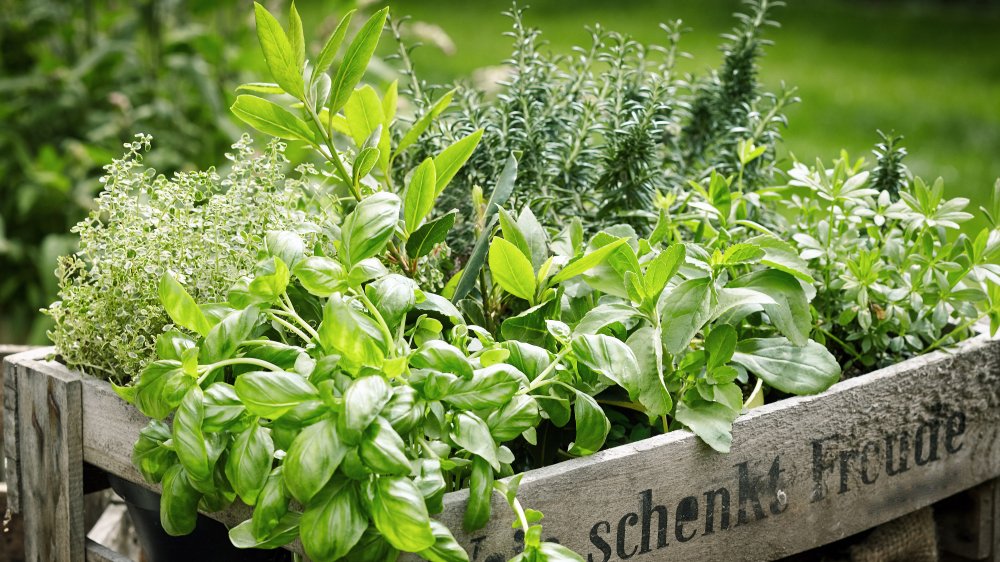This Is The Leafy Green With The Most Nutrients
If you haven't been living under a rock for the last 10 years, you'll know how quickly kale rose to prominence as the millennial leafy green of choice. While the kale-obsession has slightly subsided, it still begs the question, "Which leafy green has the most nutrients?"
Kale seems to live up to the hype that many have placed upon it due to its high levels of lutein, an antioxidant that protects eyesight along with tons of vitamin C, as noted by Shape. Furthermore, according to Healthline, one cup contains nearly 700 percent of the average person's daily requirement of vitamin K, 206 percent of the requirement for vitamin A, and 134 percent of the requirement for vitamin C. Plus, its high levels of beta-carotene combined with sulforaphane, a phytonutrient, help to fight off the damaging side effects of oxidative stress and protect the body from cancer, both outlets report. But, it's worthwhile to note that, when cooked, kale's nutrient profile can decrease slightly.
If you're looking for the ultimate nutrient-dense punch, however, sprouts may be your vegetable of choice. These microgreens come from the underdeveloped seeds of various greens including broccoli, kale, and other vegetables. These tiny sprouts may contain nearly six times as many nutrients as the mature version of the plants, Shape explains. According to the outlet, since microgreens are harvested during the early phases of development, their nutrient content is much higher because the plant needs more vitamins, minerals, and antioxidants to grow during this period.
Spinach and arugula versus kale — which is better?
A worthy runner up to kale's stacked nutrient profile comes from the leaves that children everywhere try to avoid: spinach. Easy to cook, eat, and toss into various dishes, spinach offers a plethora of vital nutrients. With the highest content of folate of most leafy greens, spinach helps protect against breast cancer since this B vitamin aids in cell division, as Shape notes. Folate also plays a key role in red blood cell creation which is important for various processes throughout the body (via Healthline).
If you're looking to make a salad, arugula might be another family favorite. With a high calcium content, arugula offers this vital mineral to people who may be deficient, such as vegans, vegetarians, and those who avoid animal products. This peppery green comes chock-full of carotenoids and dietary nitrates that may help increase blood flow and reduce blood pressure, Healthline explains.
When choosing which green to grab from the store, it all depends on what you need. If you need a one-stop-shop, kale may be the way to go. If you're looking for more calcium and vitamin B, arugula or spinach might be your best bet. But, sprouts can help tick all of the boxes with nearly a quarter of the space!

